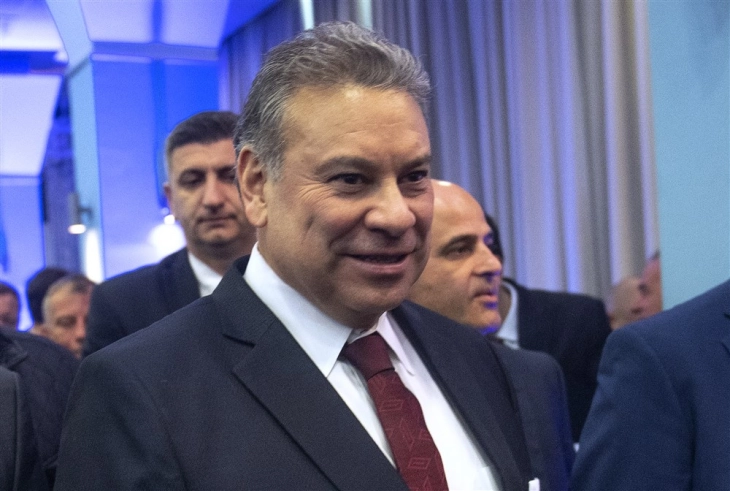Escobar: Ohrid agreement aimed at regional reconciliation and accelerated EU membership for Western Balkans
- The U.S. has once again shown that it fully supports North Macedonia’s EU membership and wants to see the country become an EU member as soon as possible, but it is also closely following Kosovo and Serbia’s actions for the implementation of what has been agreed in Ohrid, and will continue to provide active support for the normalization of relations between Pristina and Belgrade, the U.S. Special Envoy for the Western Balkans, Gabriel Escobar, said at a media briefing Monday.
- Post By Nevenka Nikolik
- 17:30, 20 March, 2023

Washington, 20 March 2023 (MIA) – The U.S. has once again shown that it fully supports North Macedonia’s EU membership and wants to see the country become an EU member as soon as possible, but it is also closely following Kosovo and Serbia’s actions for the implementation of what has been agreed in Ohrid, and will continue to provide active support for the normalization of relations between Pristina and Belgrade, the U.S. Special Envoy for the Western Balkans, Gabriel Escobar, said at a media briefing Monday.
At the briefing, Escobar said that all countries of the region deserve an accelerated EU accession, but that this will not be possible without regional reconciliation and mutual recognition.
Although nothing was signed in Ohrid, Escobar said that an agreement exists and will be treated seriously.
“This is a legal obligation agreed by both Serbia and Kosovo. The European Union also confirmed that we have an agreement, as did both leaders. And focusing on signatures is unnecessary, we have an agreement and we will continue forward,” said Escobar.
He said that the countries of the region are European, their culture and history are European and noted that with “North Macedonia’s efforts to host and participate in an international peace conference that finished successfully, the region can positively affect its own stability and security, and with it the broader European security as well.”
“My message to the European Union is that the Western Balkans is a region of opportunities, not of risks,” said Escobar.
He responded positively when asked if Serbia and Kosovo should see the Prespa Agreement between North Macedonia and Greece as a positive example, saying that this is “the most successful model of inter-ethnic harmony in the region.”
“In the case with Serbia and Kosovo, we hope that they will see the relations between Greece and North Macedonia as a good example. There was a lot of symbolism in North Macedonia, a country that has good relations both with Serbia and Kosovo… (The Prespa Agreement) is the most successful model of inter-ethnic harmony in the region and there were numerous reasons why Ohrid was chosen… And I am glad that the meeting was held there and was successful,” said Escobar.
The U.S., said Escobar, knows that Russia, through the use of media disinformation and online activities, is engaged in opposition to the plan for normalization of relations, but also in disrupting the Euro-Atlantic integration of all countries in the region.
“There is a great deal of Russian malicious influence in this process,” said Escobar, noting that there are individuals and groups in the region who support the Russian narrative, but, he said, “this is a local issue that calls for local solutions, while Russia is trying to create issues within the existing issues, placing obstacles for the region’s Euro-Atlantic integration,”
“But, realistically, issues arise and these are issues of the region that should be solved through regional reconciliation. I can say that during the negotiations, Russia wasn’t mentioned nor was it present, and if it did send any messages over the weekend they weren’t effective. We had a successful meeting and we set a fairly successful direction of regional reconciliation. And I believe this is positive,” said Escobar.
According to Escobar, the U.S. hopes that Kosovo, which is a part of the European family, will be recognized by all other EU countries, including the five countries which are yet to recognize it (Greece, Cyprus, Spain, Slovakia and Romania).ad/nn/
Photo: EPA / MIA







